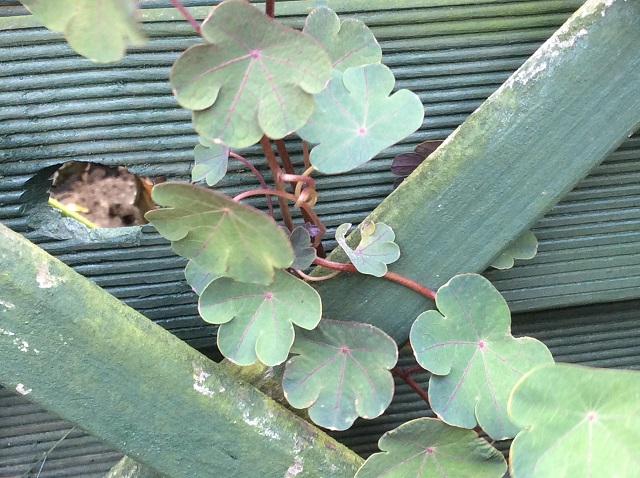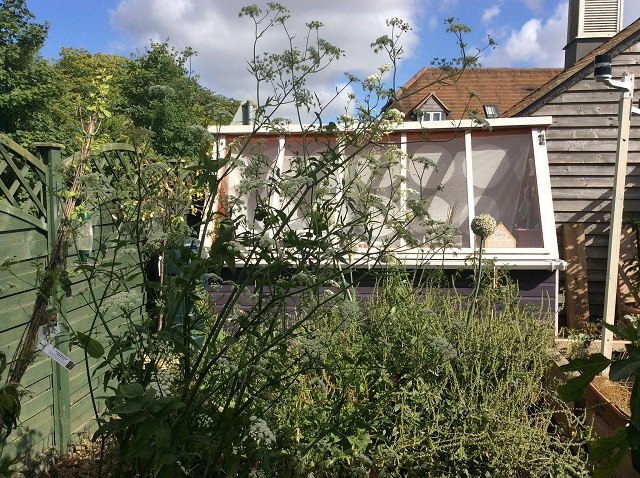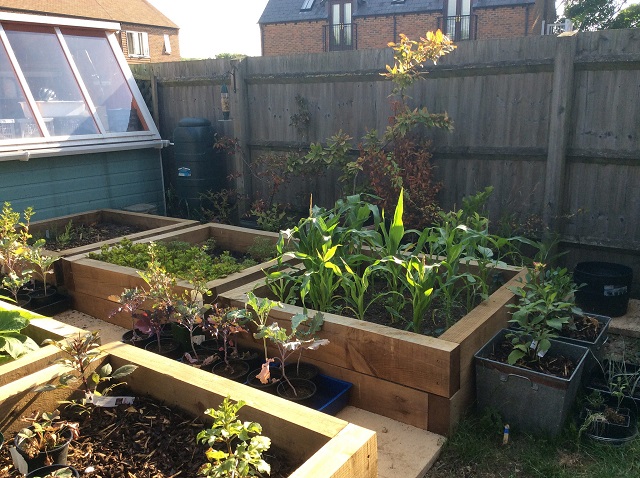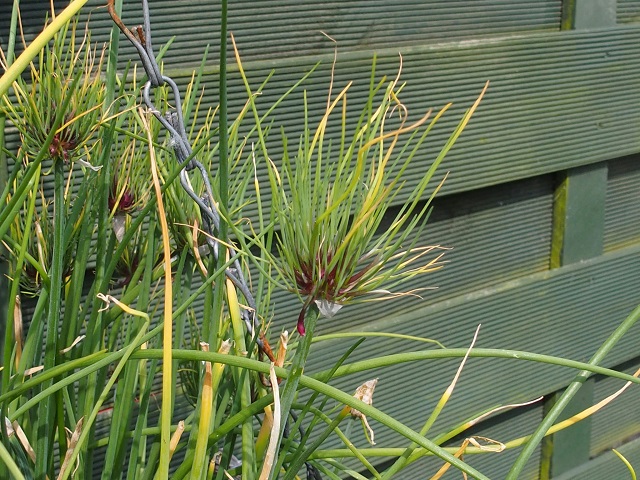
Earlier this month, we were fortunate enough to speak to Emma over at The Unconventional Gardener about growing unusual edible crops and any advice she could give people looking to start growing their own weird and wonderful foods. Emma also spoke about composting and sustainable gardening, giving us plenty of fantastic information to put to work in our own gardens. Check out her interview below.
Our interview with The Unconventional Gardener
1. We can see how much you’re interested in unusual edible crops. What made you decide to go down that route of gardening?
When I bought my first house I was interested in the environment and food miles, but the garden was in a dire state. Whilst we dealt with that I started to grow a few edible plants in pots on the patio. To begin with it was all familiar things - potatoes, herbs and garlic. Then I bought some leaf beet seeds because the packet said it was good in stir fries, and discovered that there was a whole world of edible plants that were unfamiliar, things you just can’t find unless you grow them yourself. (Although it’s getting easier to source ethnic foods these days, there are still some ‘unbuyables’ that don’t survive the commercial food distribution system.)
Gardening grew on me, and I was just fascinated by unusual things, so I started looking around and ordered Achocha seeds from the Heritage Seed Library, and my obsession grew from there!
2. What tips would you give to anyone wanting to grow their own unusual crops?
You have to be slightly philosophical about it, because when you’re growing more unusual things it’s more likely that they won’t do well. There’s less advice on how to grow them, and a lot of them come from different climates. You have to be willing to experiment, and to try new ways of growing them. You also have to be willing to eat new things! But the most important advice is to really do your homework - there are plenty of plants that aren’t edible, and some that are poisonous, and you need to be 100% sure that what comes up is what you expected, and is safe to eat.

3. You’re a Master Composter, so what would you say makes the perfect compost?
Is there such a thing as perfect compost? I don’t strive for perfection, in fact I’m a lazy composter! I let the microorganisms do the work for me. I like Cold Composting - where you throw kitchen and garden waste into the compost bin as and when you have it, and it breaks down over time. It’s slower, but the end result it much the same, without the effort needed to turn the heap, etc. The plants still love it.
4. It’s clear that you’re interested in using your garden for sustainability. How would you make the most out of your garden?
I moved house 18 months ago, and we have been building a new garden from scratch. There wasn’t much here apart from a ropey old lawn and some massive shrubs. We have put in compost bins, and water butts, and we put out lots of food for the birds. We love seeing them coming into the garden. We’d love a hedgehog visitor, too, but we have to have a solid fence to keep the local rabbits out!
I go for very mixed planting, with lots of herbs and flowering plants that bees and other beneficial insects love - there’s buddleja flowering in the front garden at the moment. It’s the only non-edible plant that got in there!
We took a long time over the garden plan, thinking about how we would like to use the garden. We have a washing line, and an arbour for seating, and we love to barbecue and cook outside. It’s focused on the permaculture concept of multiple ‘yields’, which is far more than what weight or value of veggies you harvested over the season.

5. You’ve written a booked called ‘The Alternative Kitchen Garden from A-Z’. How can people use edible crops in day-to-day life?
Some people find it quite easy and natural to incorporate homegrown crops into their everyday life, whilst others - and I’m more in this group - struggle, because we’re used to buying what we want from the supermarket, rather than working with what’s right there in the garden. For me it has been a gradual process, thinking ahead about what’s likely to be ready to harvest in a week and what we could do with it, and doing the shopping based around that. It’s easiest to start with herbs, where you can nip out and harvest a few when you’re making dinner.
6. You’ve also written a book about allotments. What tips would you give on how to best manage an allotment?
I have never quite cracked allotments! I understand the theory, but they involve a lot of hard work and constant effort to stay on top of the weeds. My downfall is that I’m quite introverted, and I don’t really enjoy gardening in front of other people, so it was always a real effort for me to even make it as far as the allotment. I had to give mine up when we moved to this house (it’s in a different area), but the design of the garden here is based in part on what I learned from allotments. We have put in raised beds, which concentrate the gardener’s effort into smaller areas, and the deeper soil in them means the plants take care of themselves for longer in hot weather - I have never been the biggest fan of getting the hosepipe out!
The best advice for allotments is to be realistic about the time you’re going to spend there. If you’re not the kind of person who can be there every day or two, then go for low maintenance crops, and cover any areas you’re not using with weed control fabric, or thick layers of cardboard, or a green manure. There’s nothing worse than coming back to the plot to find the crops have disappeared under a sea of weeds.
7. As a qualified ethnobotanist, what’s the most interesting you’ve learnt about the relationship between humans and plants?
The most interesting thing is that every culture on Earth has a different relationship with plants. I was reading the other day about the plants that different groups of Aborigines traditionally used in Australia, and it varied quite widely from one group to the next. So there could be one group using a particular plant for food whilst it was ignored by their neighbours. Understanding why people make the choices they do about food plants is intriguing - it’s a very complex topic.
Another example is that Chinese people in the UK have been poisoned by eating bunches of daffodils that they’ve bought from supermarkets. They’re often positioned in the fruit and veg aisle - but British people recognise them as flowers without a second thought. If you were brought up in China then they look very similar to Chinese chives when they’re in bud, and it’s not irrational to think that they would be edible, since they’re in with the veg. It’s rare for us to see just how much our culture and upbringing influences what we recognise as food.
There are thousands of edible plants in the world, but we concentrate on just a few of them, which is a bit short-sighted.

8. You say your garden is your sanctuary. What advice would you give to make your garden peaceful and relaxing?
I think that’s a very personal thing. Probably most people would think the most relaxing thing in the garden is a nice seating area, where they can sit with a drink and possibly a good book. For me it’s more about being able to potter about and play with my plants, without having to worry too much about weeds and watering. It’s about cutting down on the chores to give me the time to focus on the gardening tasks I actively enjoy. While I’m outside and pottering I don’t worry about what’s going on in the rest of my life.
9. Why would you say it is important to get children involved with growing crops and gardening?
There’s a lot of research being done at the moment on the positive benefits of gardening - to the point where there are suggestions that gardening should be prescribed by doctors! We know that spending time outdoors is good for kids, and also that they are more likely to eat fruit and veg that they’ve grown themselves. There are even microbes in the soil that can help ward off depression, so getting your hands dirty is a good thing.
Looking beyond what’s good for kids to what’s good for everyone, as a species we are totally dependent on plants (from everything from the oxygen we breathe to the clothes we wear) and yet we suffer very badly from ‘plant blindness’, where plant are just like wallpaper to us. We don’t see them. We need to bring up kids to see plants and value plants, and to educate the next generation of plant scientists.
10. As you write green living articles, what advice would you give to anyone wanting to keep their garden eco-friendly?
Go organic - ditch the garden chemicals. They’re not good for the soil, and healthy soil means healthy plants. If you have a healthy soil ecosystem then it can do a lot of the hard work of gardening for you! And we need to think about the other animals with whom we share our gardens - the birds and the bees, the butterflies and hedgehogs. We’re killing them all off with our pesticide obsession. We’re not doing ourselves much good, either.




